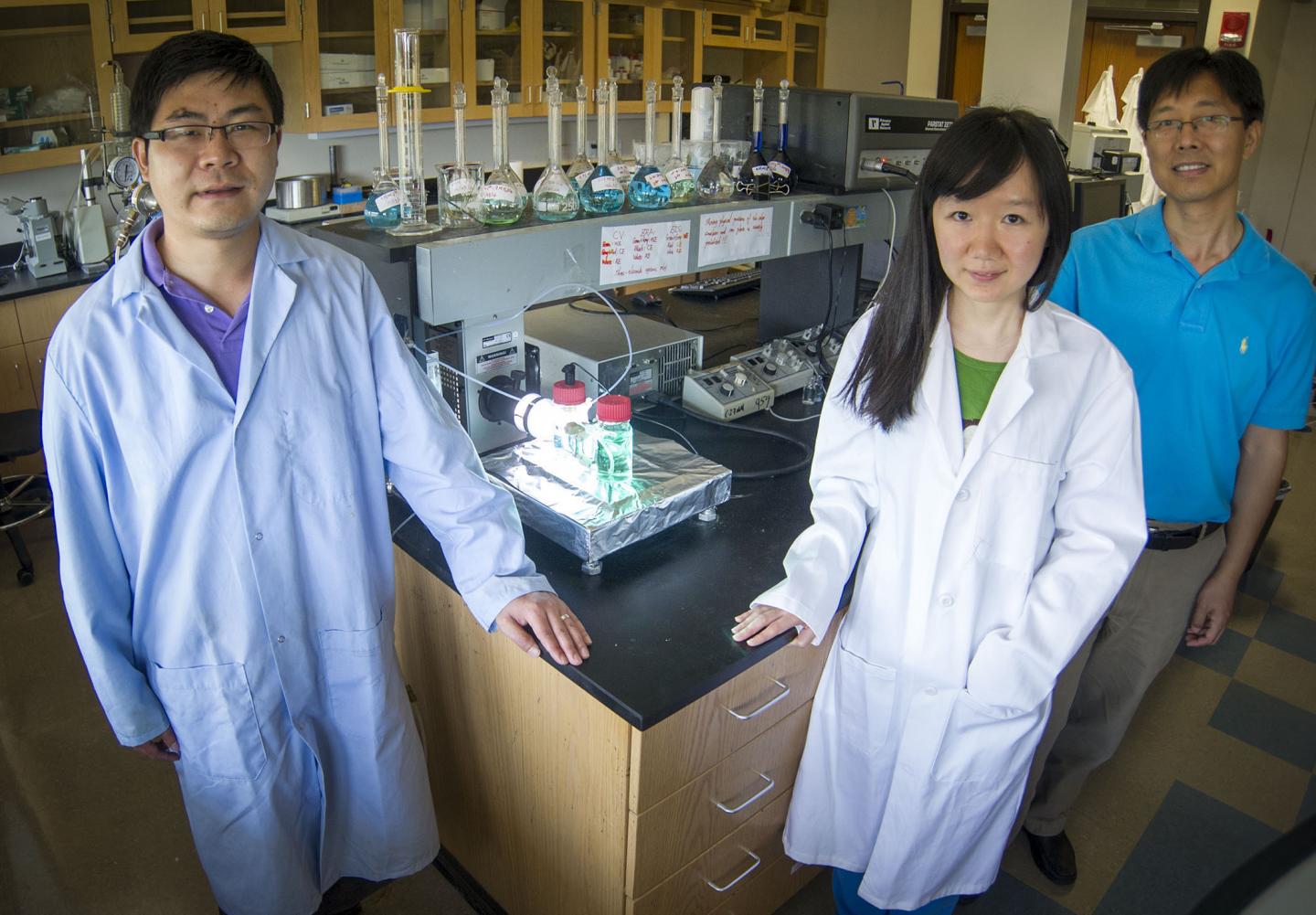Efficient nighttime solar energy storage discovered
The University of Texas at Arlington team developed an all-vanadium photo-electrochemical flow cell which allows for efficient and large-scale solar energy storage even at nighttime. The team is now working on a larger prototype which can have a major impact on how we store and use energy.
Solar energy- key word here: solar, which means sunlight is required for power. Most solar devices come equipped with storage capabilities so that whatever device you’re using can still work at night. But the technology is still limited.
Now, a team of scientists and engineers from the University of Texas at Arlington has developed a new energy cell that can store solar energy on larger scales, even when it’s dark outside.

The UT Arlington team: Dong Liu (left), Zi Wei (center) and Fuqiang Liu, with the newly developed solar cell technology.(Image: UT Arlington)
The UT Arlington team developed an all-vanadium photo-electrochemical flow cell which allows for efficient and large-scale solar energy storage even at nighttime. The team is now working on a larger prototype.
“This research has a chance to rewrite how we store and use solar power,” said Fuqiang Liu, an assistant professor in the Materials Science and Engineering Department who led the research team. “As renewable energy becomes more prevalent, the ability to store solar energy and use it as a renewable alternative provides a sustainable solution to the problem of energy shortage. It also can effectively harness the inexhaustible energy from the sun.”
The team’s developments could have a major impact on how we generate and even consume energy and lead to solar energy storage at a higher capacity and larger scale.
The team’s main goal is to create a more sustainable future by harnessing the power of the sun, one of largest natural energy sources.
“We have demonstrated simultaneously reversible storage of both solar energy and electrons in the cell,” Dong Liu said. “Release of the stored electrons under dark conditions continues solar energy storage, thus allowing for unintermittent storage around the clock.”
“Using an all-vanadium photo-electrochemical cell gives our energy storage an edge over other systems,” Wei said. “This cell allows us to attain higher storage capacity in a smaller unit,” said Zi Wei, a UT Arlington doctoral candidate.
The research is detailed in “Reversible Electron Storage in an All-Vanadium Photoelectrochemical Storage Cell: Synergy between Vanadium Redox and Hybrid Photocatalyst,” in the most recent edition of the American Chemical Society journal ACS Catalysis.


